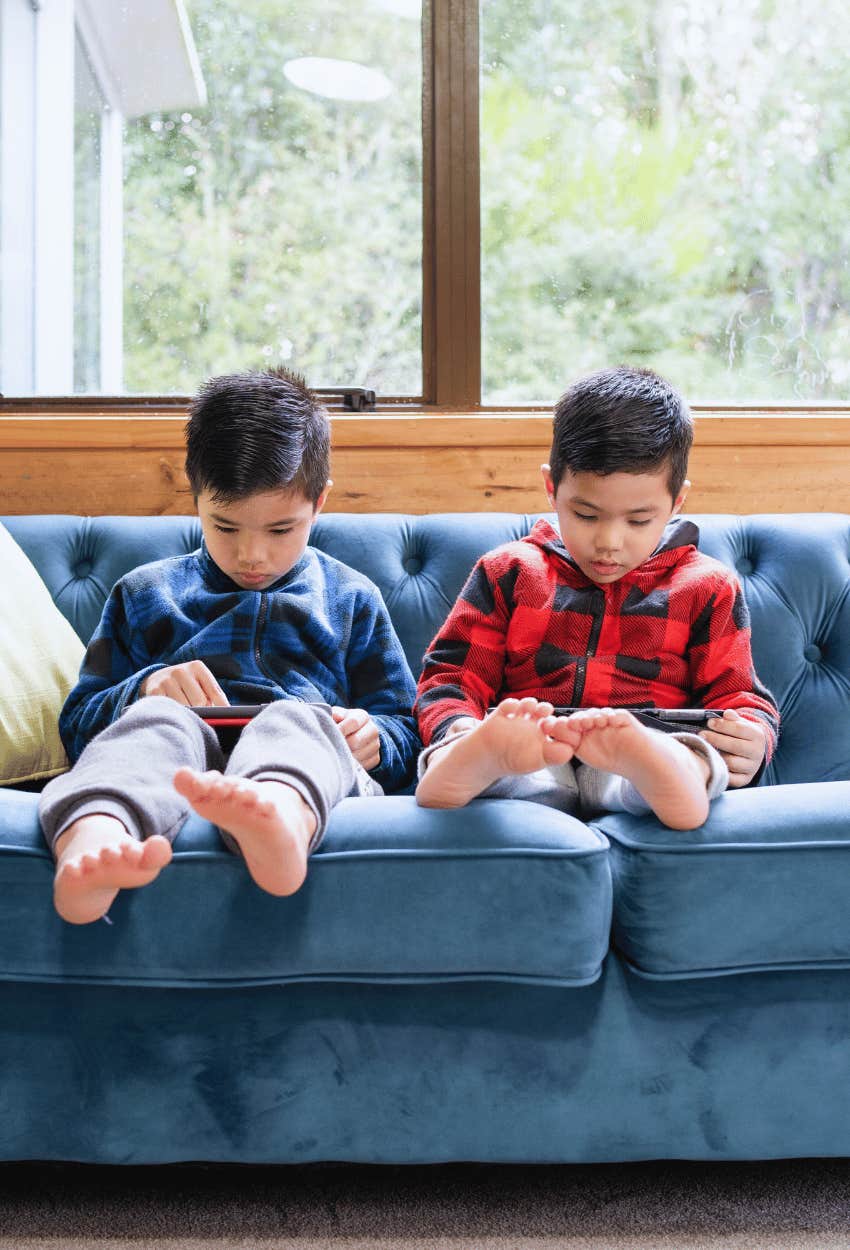Social Worker Says Taking This One Thing Out Of Schools Could Fix Everything
The one thing that could change schools is more obvious than you might think.
 Studio Romantic | Shutterstock
Studio Romantic | Shutterstock Many people have concerns about the school system, from teacher shortages to student behavior and engagement. The one common question being asked is: What can be done to fix it? While there are many ideas for improving education, opinions differ on what should be the top priority.
Haley Graham, a school social worker, believes she has the solution to revolutionize schools. In a recent social media post, she explained what needs to be taken out of schools and went in-depth about the reasoning behind it, drawing from her professional experience. Her take might be unpopular, as it challenges the norm, but as someone with firsthand knowledge, it's impossible to argue with.
A school social worker shared the one thing that needs to be removed from schools to fix everything.
Graham has worked as a school social worker for the past eight years. Through her experience, she addressed what’s wrong with schools with a hot take that many experts would agree with. "If there's one thing that I feel like is most important that I want to scream to the rooftops, to parents, to anyone with kids, anyone who's like whining about the fact that schools aren’t doing well, and they haven’t been doing well for the past few years. [The] one thing that I would say across the board, I think is like a major, major contributing factor — [is the] screens. It's the screens!”
The social worker explained that kids today are too dependent on screens because it's all they've ever known.
Having grown up in a time when screen time wasn’t as prevalent, Graham said it's obvious that today’s kids, being the first generation to be born into constant exposure to screens, have been impacted. Kids are overly dependent on screens, overstimulating their brains and creating a constant need for dopamine, which leads to frustration when they don’t get instant gratification.
When those devices are taken away at school, it can trigger strong reactions, making it harder for teachers to manage behavior. She emphasized that excessive screen time at home only exacerbates the issue. The average screen time in the U.S. is a whopping 7 hours a day, and nearly 41% of teens exceed 8 hours. What's worse? Recent research by Common Sense Media found that 40% of toddlers have a tablet by age 2, and nearly 1 in 4 have a cell phone by age 8.
A 2025 study found that children between the ages of 4 and 6 who spend a lot of time on screens are more likely to have social, emotional, and behavioral difficulties. The research couldn't pinpoint an exact amount of time that delineated healthy from unhealthy use, but what they found was less is always more when it comes to kids and development.
Jim Steyer, CEO of Common Sense Media, told NPR, "Young children now average two-and-a-half hours of daily screen time, predominantly watching short-form video content," and that's pretty much the worst content they can absorb. He told NPR that parents need to encourage their kids to watch educational content instead and to always watch the programming together.
Experts agree that excessive screen time is responsible for numerous health issues.
According to Healthline, “digital dementia,” a term coined in 2012 to describe cognitive decline from excessive technology use, while not a diagnosable condition, is prevalent. Many experts stress that all that screen time harms brain function, particularly in children and teens, leading to memory issues, focus problems, and impaired thinking.
 nazar_ab | Canva Pro
nazar_ab | Canva Pro
A 2023 study found that more than four hours of screen time a day increases the risk of dementia and causes physical changes in the brain while also disrupting sleep and mood, further harming cognitive health.
Encourage your kids to play outside, read books, or play board games, starting early to make these activities a normal part of daily life. Spend quality time with your children, even as they reach high school. While some screen time is okay to help them stay connected to the digital world, balance it with face-to-face interactions to maintain strong relationships and healthy habits.
Mina Rose Morales is a writer and photojournalist with a degree in journalism. She covers a wide range of topics, including psychology, self-help, relationships, and the human experience.

